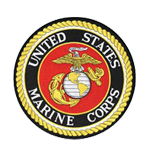In response to the COVID-19 pandemic, the CARES Act was signed into law on March 27, 2020. Most important for business owners, the Act provides businesses with unprecedented access to emergency loans as well as some federal tax relief. The Act has many provisions, but we are highlighting several key provisions now:
- In addition to businesses already eligible for SBA programs, most businesses with 500 or fewer employees are now eligible for disaster loans of up to $2 million for working capital. Your business will also be eligible for an emergency cash advance of $10,000 within days of making the application and this advance is not repayable even if your loan application is denied. See Disaster Loans details below.
- In addition to businesses already eligible for SBA programs, most businesses with 500 or fewer employees are eligible for “Paycheck Protection” loans of up to $10 million which can be used for, among other things, wages, health care, other benefits, rent and certain interest payment obligations. A portion of these loans may be forgiven. See Paycheck Protection Loans detail below.
- The Act creates a $500 billion fund for business loans and guarantees to eligible businesses, states and municipalities. The Federal Reserve System is charged with implementing these programs over the coming weeks and we will provide updates as this program takes shape.
- The Act includes several tax breaks. For example, if your business has been closed due to the pandemic, your business may be eligible for federal credits against your employment taxes. In addition, most employers will be able to defer federal payroll taxes until the end of the year (unless your business has debt forgiven under a Paycheck Protection Loan). Please discuss with your accountant, CPA or tax advisor.
Disaster Loans
The eligibility for “Emergency Economic Injury Disaster Loans,” which are typically available for natural disasters such as hurricanes, has been greatly expanded to cover the pandemic. Here are some of the highlights:
Eligible businesses.
- In addition to businesses already eligible for SBA programs (see https://www.law.cornell.edu/cfr/text/13/121.201 for size guidelines), the following business are eligible: businesses with 500 or fewer employees, sole proprietorships and independent contractors with or without employees, private non-profits and cooperatives, tribal small business concerns and ESOPs with 500 or fewer employees.
- If your business meets the foregoing requirements and your revenues have been impacted due to the pandemic, your business is eligible no matter what type of business in which you are engaged.
Key Loan Terms.
- Loans may be used to pay fixed debts, payroll, accounts payable and other bills that cannot be paid because of the pandemic’s impact.
- The interest rate is 3.75% for small businesses and 2.75% for non-profits.
- Loans with long-term maturities will be available in order to keep payments affordable, up to a maximum of 30 years. Terms are determined on a case-by-case basis, based upon your business’s ability to repay.
- No personal guarantees required on loans of $200,000 or less but the SBA will take a collateral interest in your business’s assets to the extent available.
- As long as your business was in operation as of January 31, 2020, your business is eligible (i.e., the typical one-year operating requirement has been waived).
- Your business may be approved based on its credit score or other determination without being required to submit tax returns.
Emergency $10,000 Advance. If you apply for a disaster loan, you may also apply for a $10,000 emergency advance that is to be disbursed to your business within three (3) days after you make the application. Even if your business is denied a disaster loan, the business will not be required to repay this advance.
How to Apply. Go to this SBA website: https://covid19relief.sba.gov/#/. Please note that this website just went live this morning so please contact us if you are having trouble with the website or if it does not allow you to apply for the $10,000 emergency cash advance.
Paycheck Protection Loans
Paycheck Protection Loans of up to $10 million will be available through approved SBA lenders and will be 100% guaranteed by the federal government. These loans are designed to encourage employee retention and may be forgiven as discussed below.
Eligible businesses.
- In addition to businesses already eligible for SBA programs (see https://www.law.cornell.edu/cfr/text/13/121.201 for size guidelines), any business concern (include sole proprietorships), nonprofit organization, veteran organizations, and tribal small business concerns with 500 or fewer employees is eligible. In addition, businesses that are classified as Accommodation or Food Service under the NAICS (e.g., hotels, hotels with casinos, and restaurants) and do not have more than 500 employees per physical location of the business are eligible.
- You will need to certify that the uncertainty of current economic conditions makes necessary the loan request to support your ongoing operations and that funds will be used to retain workers and maintain payroll or make mortgage payments, lease payments, and utility payments.
- If your business meets the foregoing requirements, your business is eligible no matter what type of business in which you are engaged.
Key Loan Terms.
- The maximum principal amount of a loan is 2.5X the average total monthly payroll costs incurred during the one-year period before the date of the loan, capped at $10 million. Payroll costs includes wages for USA employees (capped at $100,000 per individual), health care, other benefits, and state and local taxes assessed on employee compensation.
- These loans are to be used for the following costs incurred from February 15, 2020, through June 30, 2020: payroll costs, health care, wages, interest on mortgage payments, rent, utilities and interest on other debt obligations.
- The interest rate may not exceed 4%.
- The term may be as long as 10 years.
- No collateral or guarantees will be required.
Forgiveness
- Businesses are eligible for loan forgiveness equal to the amount spent during the 8-week period after the date of the loan for payroll costs (including wages for USA employees capped at $100,000 per employee), rent, interest on mortgages, and utilities.
- The amount forgiven is subject to reduction for certain reductions in number of employees or compensation during such 8-week period (but, if your company hires back employees or reinstates compensation during the period, this reduction will be decreased). Please contact us to discuss if this is applicable to your business.
How to Apply. Some banks are making available “pre-applications,” but these loans are not yet available because the SBA is still developing guidelines to provide to the banks. It is expected this process will take about two weeks. If you have an existing bank relationship, you should contact your bank now. If not, visit the SBA website to find a lender: https://www.sba.gov/funding-programs/loans/lender-match
Which Loan Should You Apply For?
- Emergency Economic Injury Disaster Loans are available now while Paycheck Protection Loans are not yet available because the SBA is still developing guidance for the banks. Businesses are not permitted to receive both types of loans at the same time. There is currently conflicting information as to whether you may apply for both loans at the same time or whether applying for both will slow down processing. We will provide an update as soon as this is clarified.
The Borkuslaw Group, Ltd. Team is available to answer your questions and help you obtain relief.
Contact Attorney Randall Borkus directly at 312-952-7214
Please note that information contained in this news alert is not and should not be construed as legal advice or opinion nor does this information alert create an attorney-client relationship










